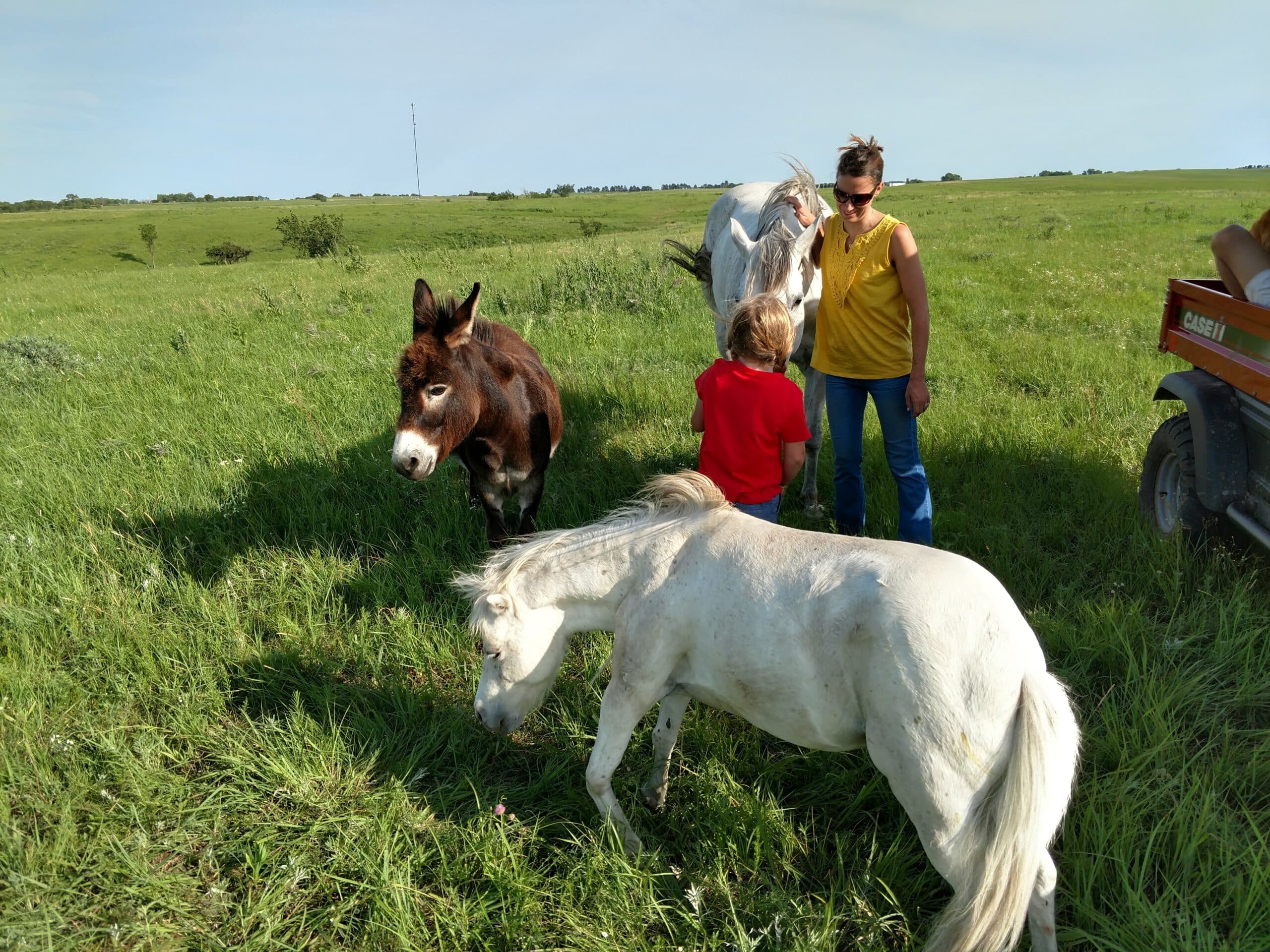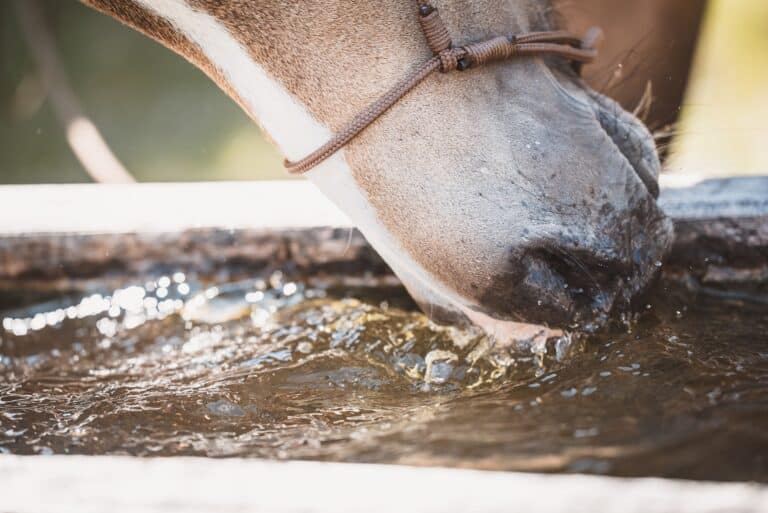“I knew from the time I was nine years old that I wanted to be a vet,” says Dr Tiffany Hall.
Dr Tiffany’s journey into equine veterinary medicine began on her grandfather’s farm in Kentucky, where she spent her childhood working with sheep and lambs. By the age of 14, she was assisting in a small animal veterinary practice, and while studying at University of Kentucky, she transitioned to a large animal hospital. It was there that she discovered her passion for equine internal medicine and neonatology — paving the way for a career dedicated to improving horse health from the inside out.
A focus on the equine gut
“My area of interest started out primarily with a critical care internal medicine focus,” Dr Tiffany explains. “Naturally, the gut is a big part of this, given horses rely on a uniquely designed gastrointestinal (GI) tract.”
As research into the equine microbiome has grown over the past decade, gut health has become an increasingly central part of Dr Hall’s clinical approach. Today, she regularly works with cases involving chronic gastrointestinal issues — such as ulcers, diarrhoea, and colic — that general practitioners have already attempted to treat without success.
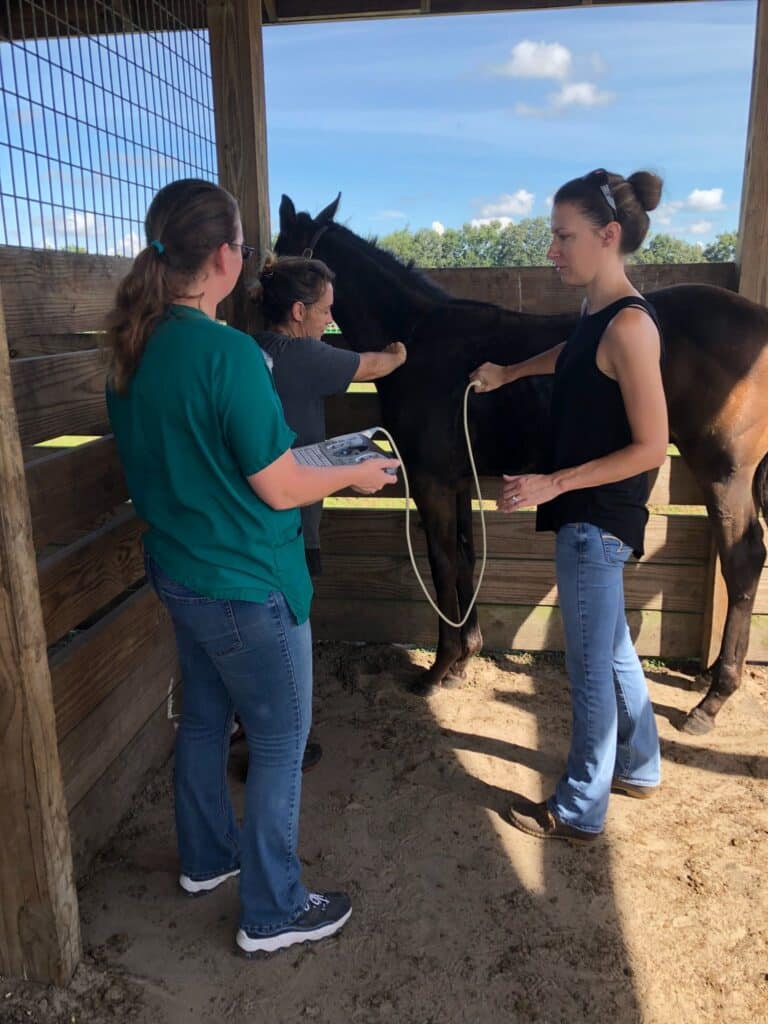
More than ulcers
The most common GI presentations Dr Hall sees are horses going off feed, changes in manure quality, and gastric ulcers. But the signs aren’t always so obvious.
“GI problems lead to a much wider array of issues,” she explains. “That includes behavioural problems or mild performance irregularities. These can often be linked to the impact of daily stressors on a horse’s gastrointestinal system, even if the stress doesn’t seem apparent to humans.”
She emphasises that even mild GI upsets can lead to systemic inflammation, affecting skin, respiratory health, and performance.
“It can result in a cascade effect throughout their system. When you can’t pinpoint a performance issue to be a true musculoskeletal issue or a specific syndrome, it often comes back to the GI tract being upset.”
Partnering with Poseidon Animal Health
Dr Hall’s connection with Poseidon Animal Health began through former student and fellow veterinarian Dr Erin Roddy, who helped bring the brand to the United States.
“Poseidon’s commitment to empowering horse owners and trainers — with education, nutritional knowledge, and a focus on performance without overt product promotion — that really appealed to me,” says Dr Tiffany.
She was also drawn to the company’s transparency and scientific backing.
“They must have products I can trust,” she says. “In the case of Poseidon, it’s the company’s commitment to having science behind each ingredient — not just referencing research, but including the ingredients in the same forms and quantities studied.”
When Poseidon began looking for a veterinarian to support their research design and coordination, Dr Hall joined the team as a consultant and collaborator. “That was a really easy ‘yes’,” she recalls.
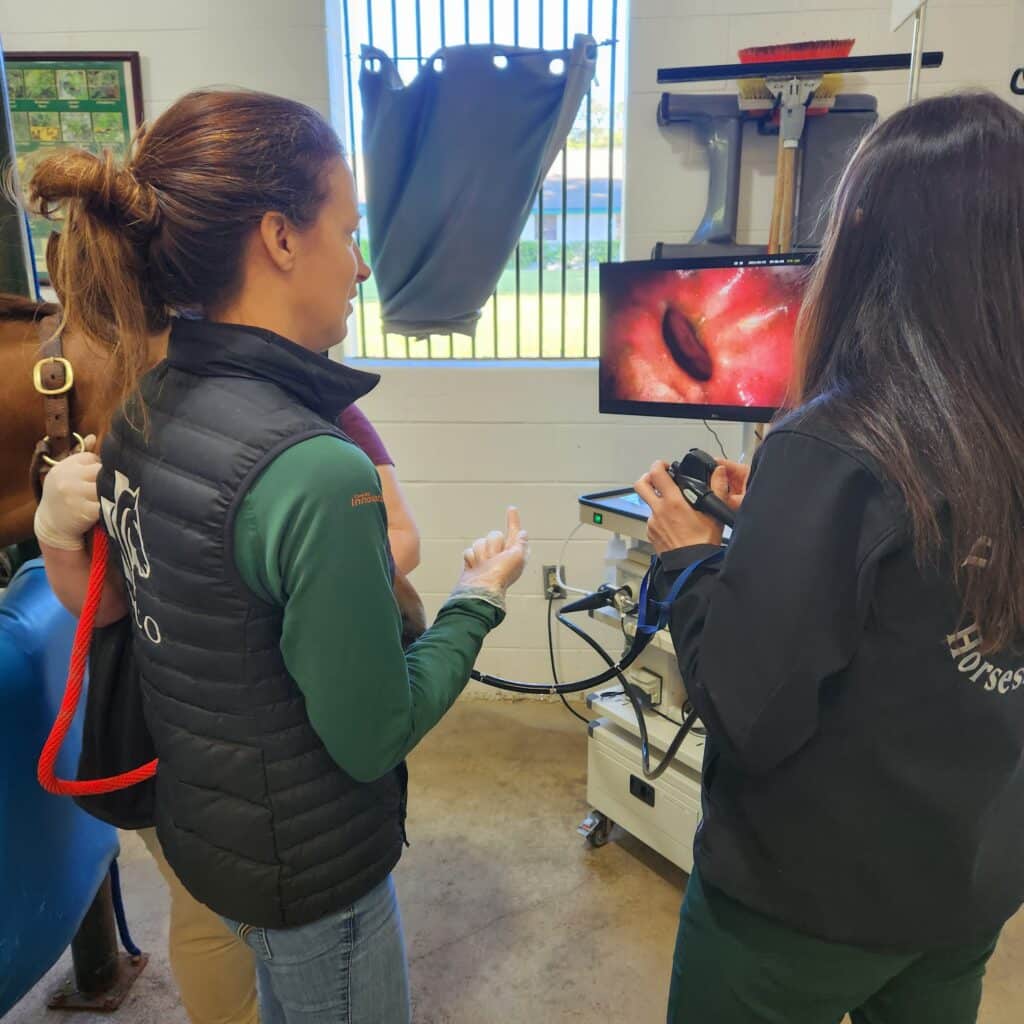
Tools in clinical practice
Working with performance horses and large broodmare populations in Lexington, Kentucky, and Ocala, Florida, Dr Hall regularly uses Poseidon’s Digestive HP and StressPaste in her clinical practice.
“Digestive HP helps stabilise the horse’s natural microbiome,” she says, “while StressPaste offers valuable support during travel, environmental changes, or competition — times when stress can take a toll.”
The performance horses she sees often relocate between regions, particularly moving from the northeast or Canada to Florida for the winter season.
“It’s really helpful to have something like Digestive HP in their toolkit,” she says. “It helps stabilise the GI tract through those big geographical moves. Because it contains pre- and post-biotics, along with other targeted ingredients, it optimises the horse’s microbiome health — even with dietary changes, stress, or travel.”
She adds that StressPaste has proven useful in reducing the risk of travel-related GI issues and stress-induced conditions.
Building a healthy microbiome from the start
In her work with broodmares, Dr Tiffany has developed a particular interest in how microbiome development in foals can impact lifelong health.
“There’s a lot of exciting new research around the importance of the microbiome from a very young age,” she says. “Foals develop their microbiome from their dam and the environment they’re born into.”
Dr Tiffany draws a comparison to human children: “It’s a bit like letting kids eat dirt and play outside. Foals benefit from early exposure to diverse microbes, which helps establish a resilient microbiome and stronger immune system.”
Research shows that early microbial health and diversity in foals results in better health and performance as adults.
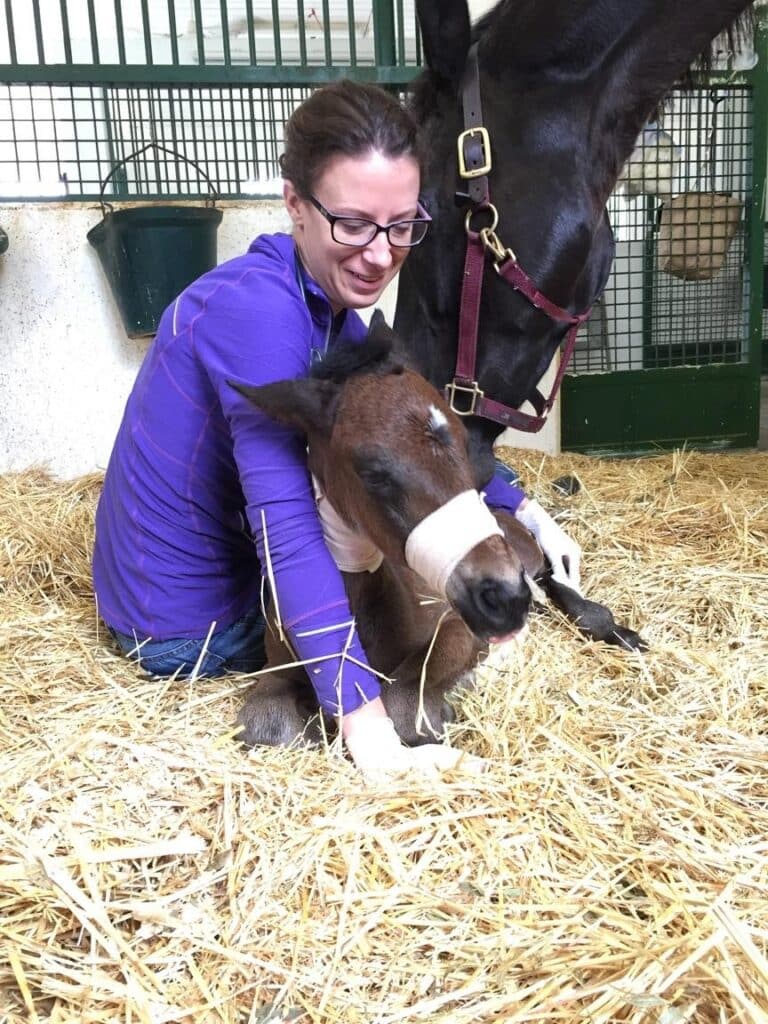
Fulfillment in the field
Although Dr Tiffany decided early in vet school to make horses her profession, she doesn’t own any herself. Instead, she finds fulfilment in the medical side of equine care — whether it’s diagnosing complex internal conditions, supporting top athletes, or helping young foals get the best start in life.
“I love the medicine and performance workups,” she says. “Watching horses I’ve worked with go on to succeed in the competition arena is incredibly rewarding.”
And outside of her clinical responsibilities? “I do occasionally enjoy mucking stalls for therapy,” she adds with a laugh. “I find it calming and therapeutic.”
Whether in the paddock or by the show ring, Dr Tiffany Hall continues to bring scientific insight, compassion, and dedication to the horses she serves — one gut at a time.
You can find out more about Poseidon Animal Health and their product range here.
